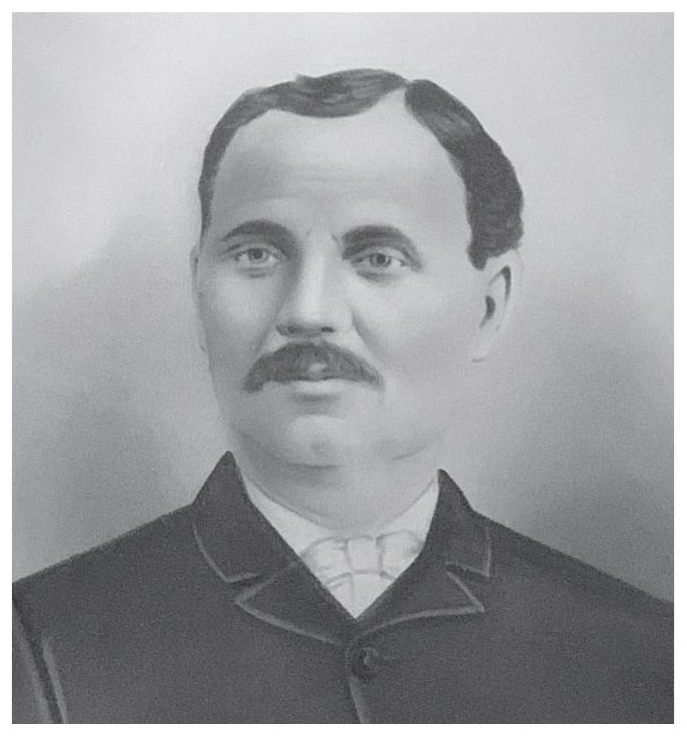
He was a Mulatto slave who became a wealthy businessman, politician, college founder, co-founder of the CME church and much more. Isaac Harold Anderson (1835-1906)
For more than ten years, I searched for an ancestor whose life’s detail perpetually eluded me. I knew that he lived in middle Georgia USA and was “famous” according to the tales of my family members. I combed through census pages, examined geographical records of Ft. Valley, GA, and squinted at old newspaper clippings. Each clue felt like a puzzle piece, but somehow the picture never completely came together. If you’re like me, you may have chased family history, you know the mix of excitement and frustration that comes with a search like this.
Then one day, while wandering through online resources, I stumbled across something called DBpedia. At first, the name sounded technical and far removed from genealogy. But curiosity won out, and I clicked in. To my surprise, there it was—the information I had been chasing for over a decade, neatly organized and connected in ways I hadn’t imagined.
So what is DBpedia? In plain terms, it’s a online — Wikipedia-like styled — service that takes all the facts inside Wikipedia and arranges them in a way that curious researchers like us can easily search and connect. Instead of scrolling through long articles, the basic facts are laid out like entries in a digital family tree. Because of it linking information together, it shows connections across places, people, and time that I and others have obviously missed.
Slave Ancestor Breakthrough!
Drumroll please: I not only found I.H. Anderson (1835 – 1906) in a few historical newspapers, I located an abundance of proven documents. Author Alicia K. Jackson wrote a book about my ancestor — a former slave, founder of Lane College, co-founder of the Christian Methodist Episcopal Church, pioneering politician, businessman, father, husband (3 times) and “more.” The “more” is significant as explained in the preview about the book, The Recovered Life of Isaac Anderson about my maternal fifth great-grandfather:
“Anderson was instrumental in helping freed people leave Georgia for the security of progressive safe havens with significantly large Black communities in northern Mississippi and Arkansas. Eventually under threat to his life, Anderson made his own exodus to Arkansas, and then later still, to Holly Springs, Mississippi, where a vibrant Black community thrived.” — The Recovered Life of Isaac Anderson | University Press of Mississippi
Repeat Research Steps
It was my mother’s recent comment about her aunt informing my Mom that “we have an ancestor who had something to do with the founding of Lane College” in Jackson, Tenn. I’ve heard this claim since I formally began ancestry and genealogy research in 2009. About a decade ago, I believed it to be I.H. Anderson, yet Lane College’s references to him were brief and the Anderson name did not initially line up with my maternal family tree. Something inside of me kept the Anderson linkage alive. I discovered that he was married three times and that included his first wife, Edith, mother of Hattie Anderson Powers, who was the mother of Armentha Powell Owen, the mother of Eugene Owen, Jr., the father of my mother, Angeline Cecil Owen Wead. Whew!
The key to unlocking the mystery was to establish that Hattie Anderson was the daughter of Edith and I.H. Anderson.
Lesson learned
My delay in linking Anderson to my family lineage stems from the cautious intent to prove our African Diasporan links. It is not an excuse, rather an explanation that highlights the meticulous and lengthy tasks of locating materials about our loved ones in buried treasurers. Once I confirmed that I.H. Anderson is in the family, the rest became easy. I used newspaper clippings, church records, historical books, government records, and photographs to confirm my findings. Our family features light-skinned ancestors and living relatives. I. H. Anderson is the son of a white enslaver, William J. Anderson, and an unnamed “Negro” or mixed Negro/Native American woman. His fair skin color is therefore, totally understandable.
More about the Amazing Ancestor Anderson
The turbulent and victorious history of I.H. Anderson is so much more than this blog space. I commit to work on a lengthier piece about him and our family that will result in a book-length manuscript, video and audio content.

